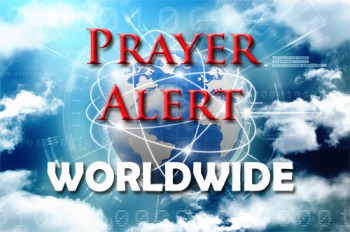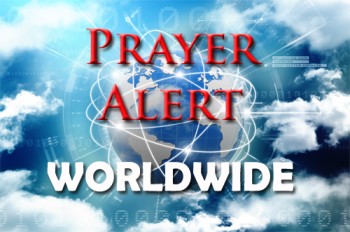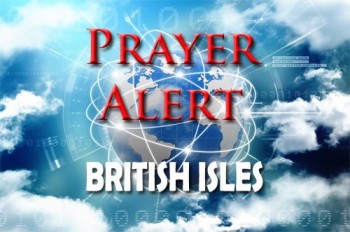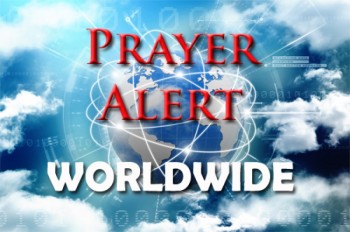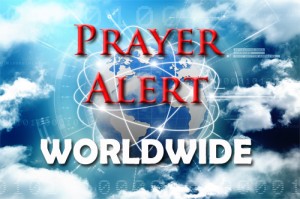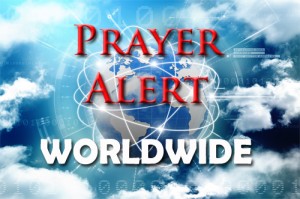Displaying items by tag: ethnic cleansing
Sudan: UK describes ‘ethnic cleansing’ in Darfur
Recent analysis of satellite and social media data reveals that at least 68 villages in Darfur have been set on fire by Sudanese armed militias since the civil war began in April. The UK minister for Africa, Andrew Mitchell, said this bore ‘all the hallmarks of ethnic cleansing’ - the first time the government has used the term to describe what is happening in Sudan. General Abdel Fattah al-Burhan, who leads the Sudanese Armed Forces (SAF), said that he would cooperate with the International Criminal Court (ICC) to bring those guilty to justice. Much of the ethnic violence is blamed on militias which are part of - or affiliated to - the Rapid Support Forces (RSF), the paramilitary group fighting the SAF for control of the country. The RSF has repeatedly denied any involvement in the violence in the region and has called for an independent international investigation. The analysis has been carried out by the Centre for Information Resilience (CIR), which uses Nasa heat-recognition technology and satellite images to identify fires and matches them with images on social media.
Armenia: the forgotten war victims
A group of Armenian organisations has appealed to the UN, warning about ethnic cleansing of the population of Nagorno-Karabakh by Azerbaijani Muslims. Their letter stated, ‘Two years have passed since the war against Nagorno-Karabakh started, but security issues are not resolved yet. Many fundamental rights are continually violated, plus significant and increasing risk of new conflicts and atrocities. Ethnic cleansing of native Armenians of Nagorno-Karabakh is especially alarming. The Azerbaijani government's extreme hatred and belligerent rhetoric, destruction of Armenian monuments, appropriation of cultural heritage, exceptional brutality by Azerbaijani armed forces, continuous threats of violence, and intimidation are characteristic of genocidal atrocities. The scenario of ethnic cleansing may become a reality if Azerbaijan’s crimes remain unaddressed and effective pressure is not put on Baku to refrain from violence.’ Armenian Christian families in villages across the enclave need prayer, hope, and practical help. If their pasturelands are not seized by armed forces, they are too dangerous to use because the military are so close. See
Educational ethnic cleansing
‘Jewish people today on campus can be tolerated, protected or abused. At no point are they treated as equals.’ (David Collier, Academia, 18 January) This Jew-hate, cloaked in anti-Zionism, is a doctrine claiming that the Jewish state, alone among the nations, has no right to exist. The Government has tried to persuade universities to adopt the threat of removal of funding streams, but this is often bitterly opposed by certain academic staff desperate to remain unchallenged in their bully pulpits. As of autumn 2020 only 29 of 133 higher education institutions had complied. Some British universities are now virtually free of Jews. This is a chilling indictment not just of British academia but of a liberal democratic society that has tolerated a wave of discrimination against Jews sweeping through universities over recent decades. In 1938 the leading Nazi student newspaper triumphantly proclaimed, ‘The goal is achieved! No more Jews at German universities.’
Mali: entire Christian village massacred
Between 100 - 135 people were slaughtered by heavily-armed Islamist extremists in a mainly-Christian village in the Mopti region of central Mali. Barnabas Fund described it as the ‘worst Mali massacre since 1946’. The jihadists encircled the isolated village of ethnic Dogon people at night and set fire to ‘everything’ in a ‘well-targeted attack’. All the victims were shot dead or burnt to death; some were charred beyond recognition, making it difficult to identify them. They set fire to all who ran and all who did not dare to go out. Only a few men escaped the gunfire. A survivor said, `About 50 heavily armed men arrived on motorbikes and pickups, surrounded the village and then killed anyone who tried to escape. No-one was spared – women, children and elderly.’ Since 2018 many Christians have been killed, abducted or forced to flee, with churches ransacked in an attempt to establish sharia law.
Nigeria: international community ignores Christian genocide
On 15 July the Christian Association of Nigeria reported that in the previous week 238 Christians were killed and more churches desecrated by Muslims. This puts the total number of Christians killed as 6,000+ since January. This is genocide. A joint communiqué from the Christian Association, representing different denominations, said, ‘There is no doubt that the sole purpose of these attacks is ethnic cleansing, land seizure and the forced expulsion of Christian natives from their land and ancestral heritage.’ The statement condemned recent attacks, where 2,000+ people had been brutally murdered and churches destroyed without any security intervention despite the various calls for help that were made. Taking into account that Christians constitute more than 50% of the Nigerian population, it is obvious that the objective of the Islamists is to create serious conflicts that, if not controlled, can lead to another civil war. Also, floods are killing many and ruining crops, raising fears of food shortages. See https://www.aljazeera.com/news/2018/07/nigeria-floods-worsen-food-shortages-180715120551293.html
Myanmar: ‘ethnic cleansing' and mission
On 11 September the UN human rights chief called the military operation targeting Rohingya Muslims ‘a textbook example of ethnic cleansing’, and urged the government to end its current cruel ‘security’ operations. High-profile individuals have publicly criticised Nobel Peace Prize winner Aung San Suu Kyi for doing virtually nothing to stop the killings and destruction in her country, and 400,000+ people have signed an online petition calling for her to be stripped of her award. Myanmar has a history of violence against minorities, including Christians. Many people are held captive by widespread drug use, spiritism, occult beliefs, and astrology. 84% of the population, including the Rohingya, have still not heard the name of Jesus. Even so, in recent years, there has been a growing openness to Jesus, especially among Buddhist monks. Prayers can change their physical and eternal reality. See
